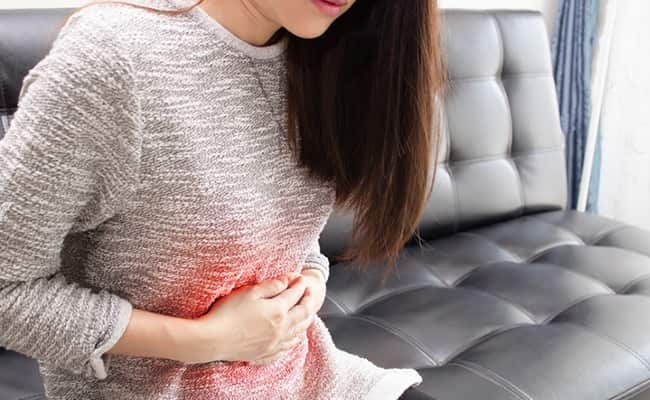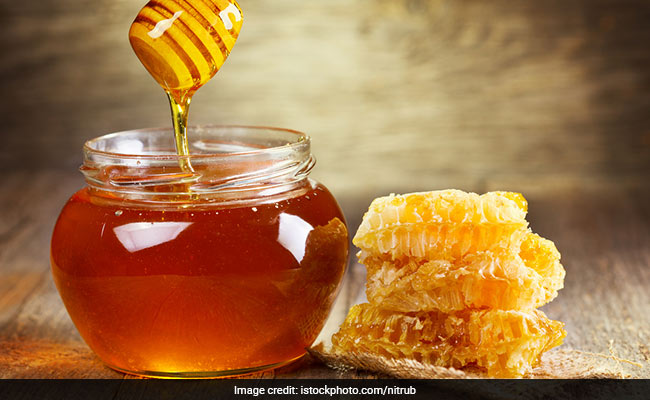Food poisoning
What is it?
 Food poisoning: Food poisoning refers to poisoning that occurs due to eating foods contaminated
Food poisoning: Food poisoning refers to poisoning that occurs due to eating foods contaminated
Food poisoning refers to poisoning that occurs due to eating foods contaminated with toxins or poisonous substances secreted by some bacteria. Food poisoning is more common in areas with poor sanitation or living conditions (often occurs in community feasts, cooked and served under unhygienic conditions or food stored under such conditions for several hours). Most cases of food poisoning are from common bacteria like Staphylococcus or E. coli.
What are the causes?
 Foodborne illness: Improper cooking of food can also cause food poisoning
Foodborne illness: Improper cooking of food can also cause food poisoning
Food or water can get contaminated due to its handling by a person infected with or carrying micro-organisms causing food poisoning. Improper cleaning and washing of fruits and vegetables, and improper cooking of food can also cause food poisoning.Infants and elderly people have the greatest risk for food poisoning. One is also at higher risk if there is a a serious medical condition, like kidney disease or diabetes, a weakened immune system, etc.
What are the symptoms?
 Food poisoning: It generally occurs within 2 to 3 hours of eating or drinking infected food or water
Food poisoning: It generally occurs within 2 to 3 hours of eating or drinking infected food or water
Food poisoning generally occurs within 2 to 3 hours of eating or drinking infected food or water; however it may occur earlier or later. The symptoms include nausea (a feeling of vomiting), vomiting, pain in the abdomen and diarrhoea. Other symptoms are fever, cold sweats, weakness, headache and dehydration.
What are the risk factors?
When we say risk factors of food poisoning, we refer to anything which makes a person more prone to foodborne illness. Primarily, consumption of adulterated food can contribute to food poisoning. But that's not all, some more factors can contribute to a person's risk of food poisoning. Here's a list of the main risk factors of food poisoning.
- Using dirty and contaminated utensils
- Eating food from unsafe sources
- Improper cooking
- Improper techniques of reheating food
- Improper hygiene
How is the diagnosis made?
For diagnosis, the doctor reviews the symptoms, examines the patient and suggests laboratory testing of a sample of stools and the suspected food if available. A very important symptom for diagnosing it is that all the people who ate the same food get infected. In such cases, a careful analysis of food, to correlate symptoms to the food items consumed by those affected and those unaffected helps to pinpoint the most likely item which might have been infected.
What is the treatment?
One usually recovers from the most common types of food poisoning within a couple of days. The goal is to feel better and avoid dehydration. The treatment is mostly supportive i.e. treatment of dehydration and replacing salts. Some patients may need treatment of symptoms like drugs to treat vomiting. Occasionally antibiotics may be required if the organisms are demonstrated on laboratory examination; however most of the time these are not required because patients improve soon after initiation of supportive measures.Self-care measures include drinking clean or boiled water with some salt and sugar at frequent intervals. It is important to drink water often to prevent the patient from getting dehydrated because of diarrhoea and vomiting. If there is diarrhoea and the patient is unable to drink fluids (for example, due to nausea or vomiting), he may need medical attention and intravenous fluids. This is especially true for young children.
What are the prevention?
The following points should be considered to prevent food poisoning: Drinking water should be clean and safe. Food should be kept covered while stored to avoid flies and insects from sitting on it. Buying food from roadside vendors should be avoided. Fruits and vegetables should be washed properly before eating. Food should be cooked properly. Do not use outdated foods, packaged food with a broken seal, or cans that are bulging or have a dent. Do not use foods that have an unusual odor or a spoiled taste.
What are the complications?
While most foodborne illnesses can be cured with medicines prescribed or plenty of rest combined with proper hydration, complications can occur during the healing process. A person suffering from foodborne illness is likely to experience some serious health complications. Some of the most common complications are kidney failure, arthrities, nerve damage, anemia, IBS and lactose intolerance.
What are the dietary and lifestyle advice?
A person suffering from food poisoning needs to take extra care of the diet. Since it is a foodborne disease, one needs to be very mindful of what one eats as it has a deep impact on the effect of medical treatment. Food poisoning patients need to drink lots of fluids to avoid dehydration. Besides this, the patient needs to eat bland foods like honey, bananas, egg whites, oatmeal, rice, peanut butter, mashed potatoes, etc.
Food poisoning News More News
FAQ Related to Food poisoning
................... Advertisement ...................
................... Advertisement ...................
................... Advertisement ...................
................... Advertisement ...................























